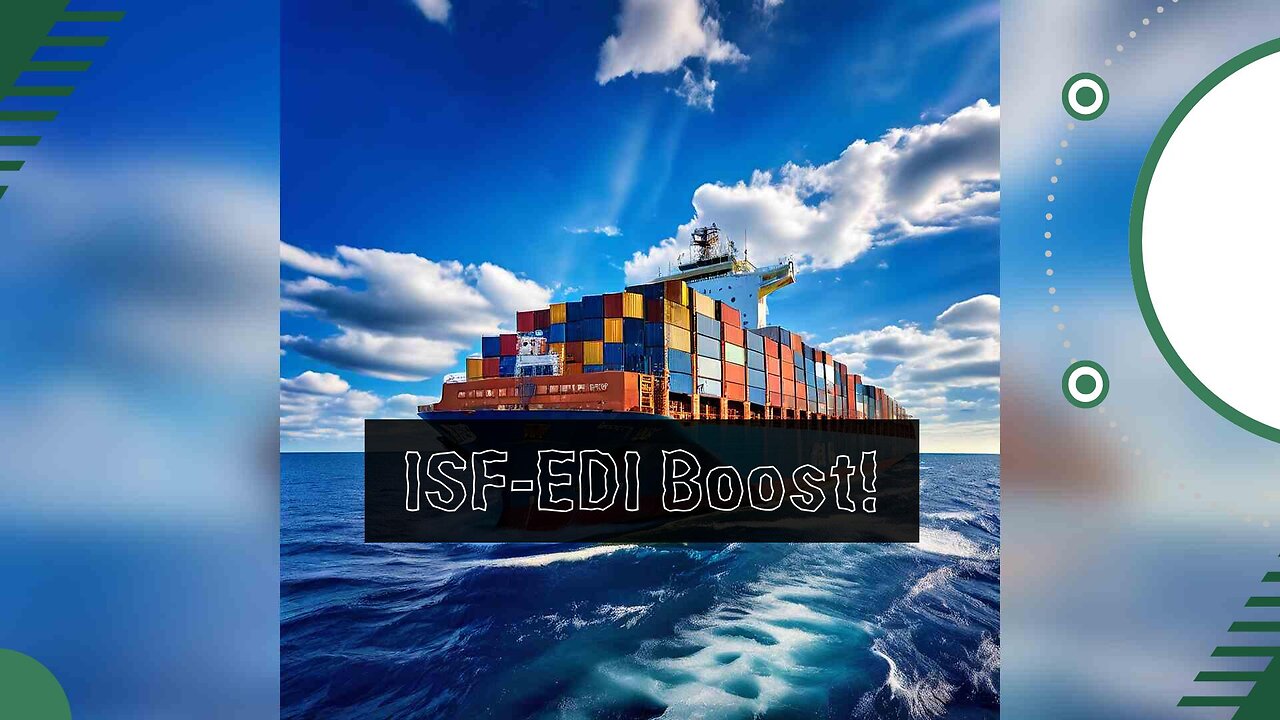Premium Only Content

Simplifying Customs: The Marriage of ISF and EDI for Seamless Data Exchange
ISF Filer || isf@isffiler.com || 858-280-9374 || www.isffiler.com
In this video, we discuss the importance of the Importer Security Filing (ISF) and its marriage with electronic data interchange (EDI) in the customs brokerage process. The ISF, also known as the 10+2 rule, requires importers to submit specific information about their cargo before it arrives at a US port. EDI refers to the exchange of standardized electronic documents between different computer systems, enabling efficient data exchange. By utilizing an EDI system, customs brokers and importers can electronically submit the required ISF information to US Customs and Border Protection (CBP), eliminating manual paperwork and reducing errors. The integration of EDI systems also streamlines the process of obtaining and managing customs bonds, providing greater visibility and control. This marriage of ISF and EDI extends to the entire supply chain network, facilitating real-time, standardized information exchange among stakeholders. Collaboration between customs brokers, importers, and other members of the supply chain becomes crucial in optimizing efficiency. Advancements in technology, such as IoT, AI, and blockchain, hold great potential for further enhancing data exchange efficiency in the customs brokerage process.
#usimportbond #isfcustomsbroker #uscustomsclearing #isfentry
Video Disclaimer Here: This video is intended for educational purposes and has no affiliation with US government entities.
00:16 Importer Security Filing (ISF) and Electronic Data Interchange (EDI) play a crucial role in the importation process by allowing for seamless and efficient data exchange.
00:34 ISF, also known as the 10+2 rule, requires importers to submit specific information about imported cargo to U.S. Customs and Border Protection (CBP) before it arrives at a U.S. port.
01:07 Utilizing an EDI system enables customs brokers and importers to electronically submit ISF information to CBP, speeding up customs clearance processes and reducing errors in data submission.
02:10 The integration of ISF, EDI, and customs bonds enhances efficiency in data exchange throughout the supply chain network, optimizing communication between stakeholders and paving the way for future technological advancements in customs processes.
-
 LIVE
LIVE
The Quartering
23 hours agoTrump Inauguration LIVE Broadcast & Commentary With DecoyVoice, Hannah Clare & Styxhexenhammer!
4,221 watching -
 LIVE
LIVE
LFA TV
23 hours agoLIVE: INAUGURATION OF PRESIDENT DONALD J. TRUMP
5,171 watching -
 53:47
53:47
Russell Brand
3 hours agoInauguration Day Live! – SF522
114K31 -
 2:43:30
2:43:30
Donald Trump Jr.
5 hours agoFull Coverage of My Father’s Inauguration, America is Back. | TRIGGERED Ep.209
298K222 -
 1:49:47
1:49:47
Donald J. Trump
3 hours agoThe 60th Presidential Inauguration Ceremony
310K468 -
 DVR
DVR
GOP
13 hours agoThe 60th Presidential Inauguration Ceremony
121K37 -
 3:18:37
3:18:37
Redacted News
5 hours agoLIVE INAUGURATION DAY COVERAGE | Trump officially takes office
133K73 -
 1:04:17
1:04:17
The Dan Bongino Show
5 hours agoTrump's Historic Inauguration - LIVE FROM DC (Ep. 2404) - 01/20/2025
876K1.55K -
 1:07:17
1:07:17
Nerdrotic
4 hours ago $6.05 earnedReturn of the KING! - Nerdrotic Nooner 459
121K2 -
 2:37:40
2:37:40
Due Dissidence
13 hours agoLIVE: Donald Trump Inauguration - Reaction, Commentary, Reporting From DC
59.3K16